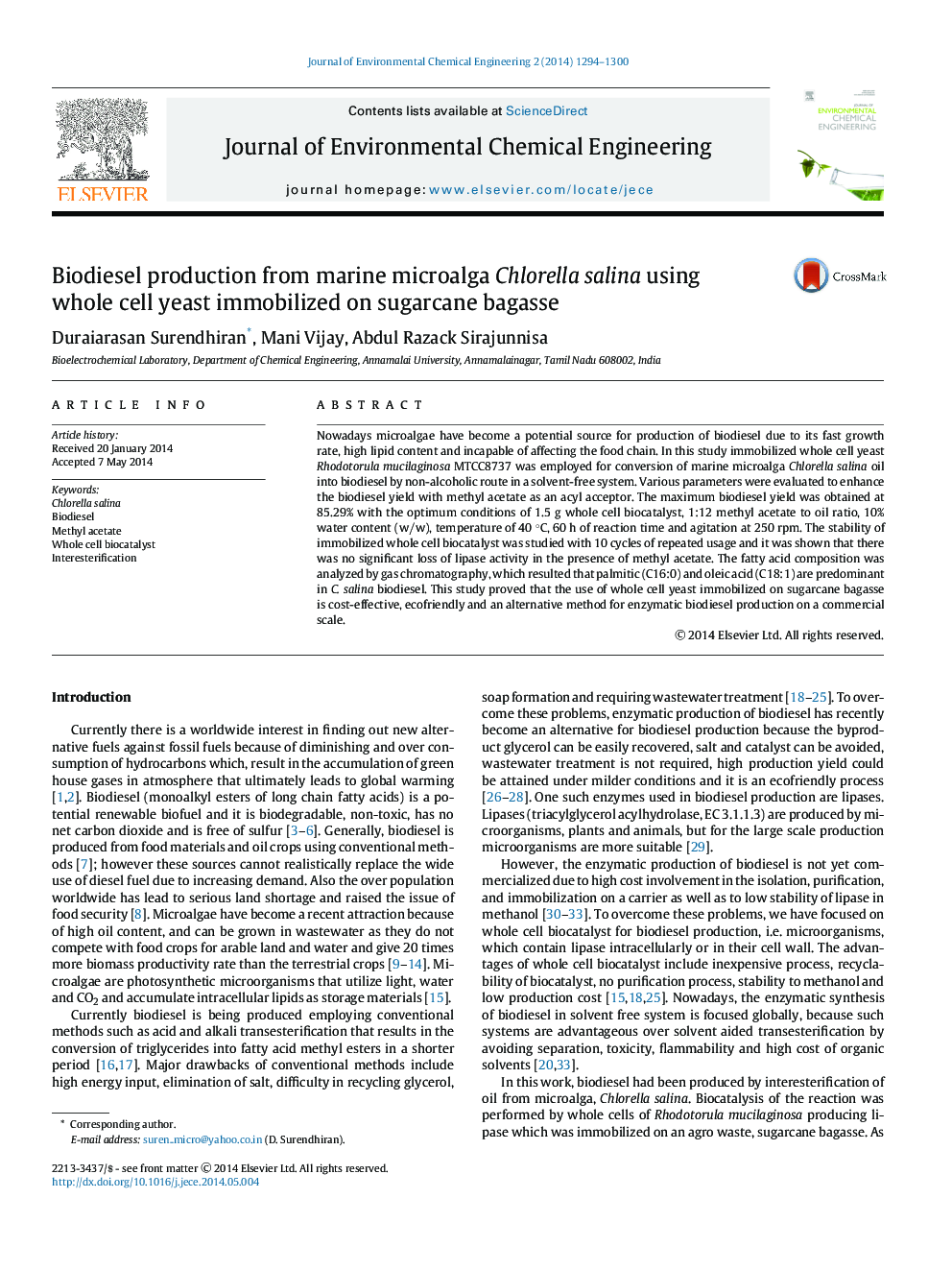| Article ID | Journal | Published Year | Pages | File Type |
|---|---|---|---|---|
| 221960 | Journal of Environmental Chemical Engineering | 2014 | 7 Pages |
Nowadays microalgae have become a potential source for production of biodiesel due to its fast growth rate, high lipid content and incapable of affecting the food chain. In this study immobilized whole cell yeast Rhodotorula mucilaginosa MTCC8737 was employed for conversion of marine microalga Chlorella salina oil into biodiesel by non-alcoholic route in a solvent-free system. Various parameters were evaluated to enhance the biodiesel yield with methyl acetate as an acyl acceptor. The maximum biodiesel yield was obtained at 85.29% with the optimum conditions of 1.5 g whole cell biocatalyst, 1:12 methyl acetate to oil ratio, 10% water content (w/w), temperature of 40 °C, 60 h of reaction time and agitation at 250 rpm. The stability of immobilized whole cell biocatalyst was studied with 10 cycles of repeated usage and it was shown that there was no significant loss of lipase activity in the presence of methyl acetate. The fatty acid composition was analyzed by gas chromatography, which resulted that palmitic (C16:0) and oleic acid (C18:1) are predominant in C. salina biodiesel. This study proved that the use of whole cell yeast immobilized on sugarcane bagasse is cost-effective, ecofriendly and an alternative method for enzymatic biodiesel production on a commercial scale.
